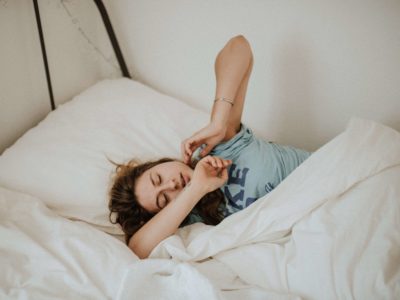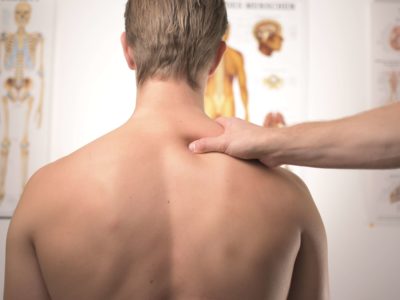Osteopathy for sleep disorders
Restorative sleep is the one that allows you to be in good shape the next day. A good night’s sleep not only recharges the batteries, sleep keeps the body in good physical and mental health.
Patients who come to consult for sleep disorders in osteopathy are generally surprised by the quality of the solutions provided over the long term.
Some difficulties in getting to sleep are in fact linked to external factors such as daily stress, anxiety, over-exposure to screens and muscle tension following poor posture.
Situations where the body, just before going to bed, finds itself significantly stimulated cognitively and physically. This stimulation relates to the neurovegetative system (NSV) on which the osteopath can intervene.
Sleep disorders in two categories
Dyssomnia
A group of symptoms that alter the quality and quantity of sleep. Dyssomnia affects middle-aged adults primarily, and reported symptoms include problems falling asleep, and frequent or early waking.
The causes are:
- Pain / Stress
- Migraine / Headaches
- Medication
- Alcohol/Drugs
- Environment: dound, light
Parasomnia
Restlessness, emotions, abnormal and unconscious perceptions and dreams that happen during a period of sleep are all symptoms of parasomnia. It affects children primarily.
Examples:
- Confusional
- Awareness
- Somnambulism
- Night terror
- Nightmare
How to improve your sleep hygiene?
Education targets health practices (eg, diet, exercise, and substance use) and environmental factors (eg, light, noise, temperature, and mattress) that may be harmful or beneficial for sleep. Although these factors are rarely serious enough to be the main cause of chronic insomnia, they can increase an existing problem and hinder the progress of treatment.
While poor sleepers are generally more knowledgeable about sleep hygiene, they also practice more unhealthy practices than good sleepers. Thus, the goals of sleep hygiene are to promote better health practices.
Non-pharmacological approaches
The interventions mainly consist of short-term cognitive-behavioral therapies. These methods work primarily by reducing increased autonomic and cognitive arousal, modifying maladaptive and self-perpetuating sleep patterns, changing dysfunctional beliefs and attitudes about sleep, and educating patients about healthier sleep practices.
- Cognitive-behavioral therapy
- Technique of paradoxical intention
- Relaxation therapies, meditation
Note: Behavioral intervention combined with pharmacological agents may be more effective than either approach alone.
Osteopathy
The direct implication of osteopathy on clinical results is debatable today.
Osteopathy focuses on stimulation of the vagus nerve through musculoskeletal massage, myofascial techniques, and structural techniques.
Références
Diagnosis and treatment of chronic insomnia
Non-pharmacologic strategies such as stimulus control therapy and relaxation and cognitive therapies have the best effect sizes followed by sleep restriction, paradoxical intention and sleep hygiene education which have modest to less than modest effect sizes.
The Extraordinary Importance of Sleep
By 2005, scientists and clinicians had not only identified and clearly defined a large number of sleep disorders but had discovered that many of them were highly prevalent.
Changes in sleep patterns after vagus nerve stimulation, deep brain stimulation or epilepsy surgery: Systematic review of the literature
VagusNerveStimulation induces sleep apnoea dependent of the stimulation variables. This condition can be reverted modifying these settings. Surgical procedures for epilepsy cause an improvement in objective and subjective sleep parameters that depend on the success of the procedure evaluated through ictal frequency control. There is evidence that non-pharmacologic treatment of epilepsy has different effects on sleep patterns.
The perceptions and experiences of osteopathic treatment among cancer patients in palliative care: a qualitative study.
The benefits of osteopathy were described as more than just the manual treatments with participants valuing osteopathy as a holistic, meditative, and non-pharmaceutical approach. Participants also described the osteopathic treatments as assisting with a range of cancer-related health complaints such as pain, fatigue, and sleep problems
NOTE: The information contained in this sheet is provided for your information only. Under no circumstances can they replace a consultation.









